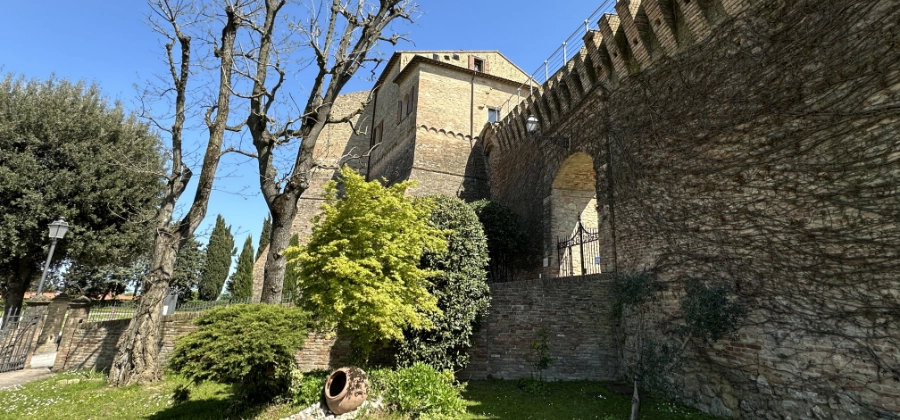
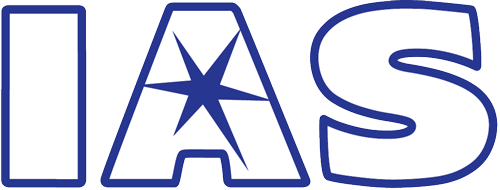
International Astrocyte School
dedicated to
Glia in Health and Disease
Bertinoro, Italy • 12-18 April 2026


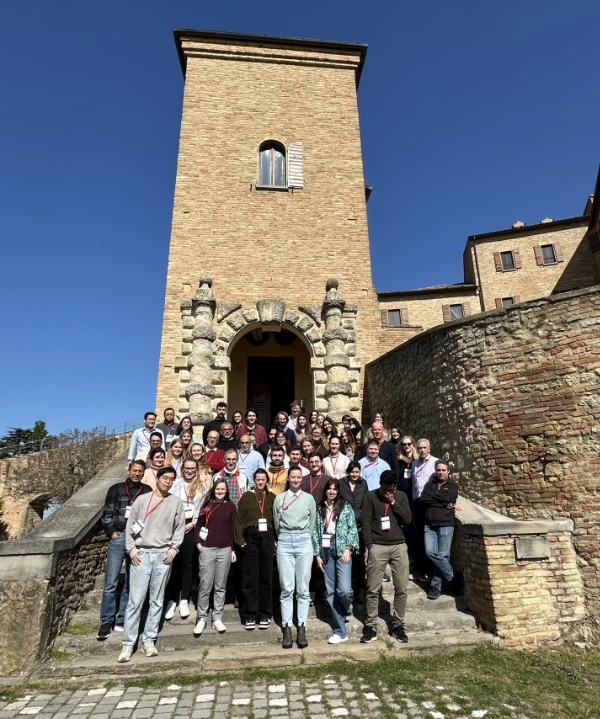
The International Astrocyte School is aimed at all those who are attracted by the most intriguing hypotheses on the role of astrocytes and other glial cells in brain function and dysfunction and wish to learn how to best approach these problems. The school, with its strategy of disseminating state-of-the-art knowledge, is especially targeted at young scientists beginning their careers in this field, but is also open to senior scientists wishing to refresh their glial background.
A hallmark of our School is the debate of intriguing concepts, often with contradictory data in current literature. One of the aims of the School is to critically evaluate the available data and possible interpretations, following rigorous and unbiased scientific approaches. Every year, the IAS Agora brings students and faculty together to discuss selected themes, in an open and informal fashion (when possible in the beautiful context of an open-air amphitheatre).

Applications open:
27 October 2025
Application deadline:
19 December 2025
Notification of selections:
16 January 2026
The organisers are working hard on the selection of this year’s applicants. Results will be communicated in the next days. Stay tuned!
Selected applicants must confirm their acceptance by:
28 January 2026
Payment:
27 February 2026
Alfonso Araque
(Minneapolis, MN, USA)
Giorgio Carmignoto
(Padua, Italy)
Richard Robitaille
(Montréal, Canada)
Paulo Magalhães
(Padua, Italy)
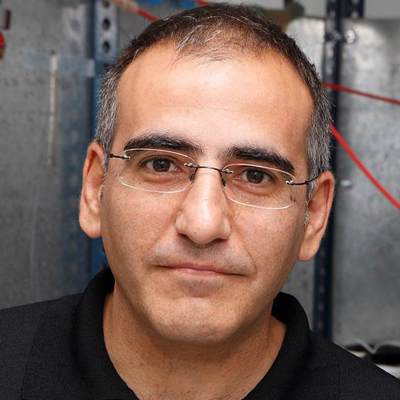
Alfonso Araque is Professor in the Department of Neuroscience at the University of Minnesota since 2013. He obtained his Ph.D. in 1993 in Biological Sciences at Universidad Complutense de Madrid. He did his postdoctoral research with Dr Phil Haydon at the Iowa State University, Ames, USA, from 1996 to 1999, studying astrocyte-neuron communication in cultured cells. He established his independent laboratory in 2001 at the Cajal Institute in Madrid, Spain. His research interests focus in studying the mechanisms, properties and physiological consequences of the functional communication between neurons and astrocytes, aiming to understand its role in physiological and pathological aspects of brain function. His major contributions include: the first demonstration of astrocyte-induced slow inward currents (SIC) mediated by calcium and SNARE-protein dependent glutamate release from astrocytes; the ability of astrocytes to discriminate between the activity of different synapses and to integrate those inputs, which indicate that astrocytes show integrative properties for synaptic information processing; the existence of new forms of neuron-astrocyte signaling mediated by endocannabinoids; the ability of astrocytes to regulate synaptic transmitter release at single hippocampal synapses; the existence of a form of long-term potentiation (LTP) of synaptic transmission induced by the temporal coincidence of astrocytic and postsynaptic signaling; the ability of endocannabinoids to potentiate synaptic transmission through stimulation of astrocytes; the involvement of astrocytes in the cholinergic-induced LTP in vivo; the circuit- and synapse-specific astrocyte-neuron signaling in the striatum; the demonstration that astrocytes mediate the synaptic effects of dopamine and amphetamine in the nucleus accumbens; the demonstration that opioids activate nucleus accumbens astrocytes and stimulate gliotransmission; the demonstration that cortical astrocytes regulate sensory information processing; the spatial organization of neuron-astrocyte interactions in the cortex; the demonstration of a spatial threshold for the intracellular extension of the astrocyte calcium signal.

Dr Giorgio Carmignoto is group leader at the Institute of Neurosciences which belongs to the National Research Council (CNR), the main public research organisation in Italy. He is also associated with the Department of Biomedical Sciences of the University of Padua. The central theme of his research is the specific signalling between neurons and astrocytes investigated by laser-scanning microscope living cell imaging and patch-clamp recording techniques. Among obtained results are the first evidence for the ability of astrocytes i) to be activated by neurotransmitter synaptic release in slice preparations; ii) to work as principal mediators of neurovascular coupling; iii) to generate neuronal synchrony by acting on extrasynaptic NMDA receptors. His research is now focused on the role of astrocytes in epilepsy.
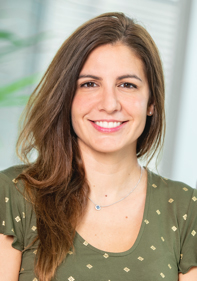
Prof. Dr. Cristina García-Cáceres is a Professor of Neuroendocrinology of Systemic Metabolism at the University Hospital, Ludwig-Maximilians-Universität (LMU) Munich, and Associate Director and Head of the Astrocyte-Neuron Network Department at the Institute for Diabetes and Obesity, Helmholtz Center Munich, Germany. Her research investigates how the brain controls metabolism and energy balance, with a focus on hypothalamic astrocytes that actively regulate feeding and systemic metabolism. Her studies revealed insulin-dependent glucose transport into the brain via astrocytes and uncovered hypothalamic astrocytic mechanisms linking metabolic dysfunction to obesity, hypertension, and hormone sensitivity. Her work aims to elucidate astrocyte-neuron interactions in energy homeostasis and translate these discoveries into new therapeutic strategies.
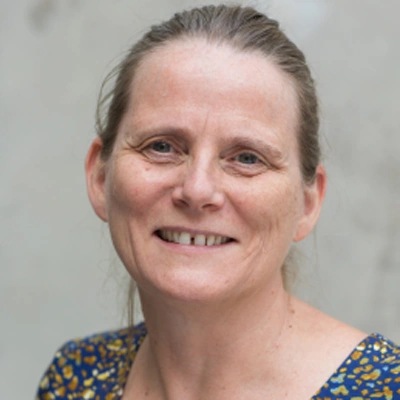
Elly Hol is Vice-Dean of Research of the University Medical Center Utrecht, professor of “Glia biology of brain diseases” at the Utrecht University, a member of the Royal Netherlands Academy of Arts and Sciences (KNAW), and a member of the Academia Europaea. She is head of the department of Translational Neuroscience at the University Medical Center Utrecht Brain Center. Her research is focused on the role of glial cells in brain diseases. The overall aim is to elucidate the molecular and functional changes in glia that contribute to the pathogenesis of neurological and psychiatric diseases. Her work is translational and includes studies on glial cells in human post-mortem brain tissue, in human cell models, and in mouse models for brain diseases. Elly was trained as a medical biologist with a specialization in molecular neurobiology. After her PhD in Utrecht, she obtained a Max-Planck Fellowship to work at the Max-Planck-Institute for Psychiatry in Martinsried. In 1997, she started as a post-doc at the Netherlands Institute for Neuroscience in Amsterdam, and between 2003 and 2013 she headed the group “Astrocyte Biology & Neurodegeneration”. She was appointed professor of "Biology of glia and neural stem cells” at the University of Amsterdam in 2012. As of 2013 she works as a principal investigator at the department of translational neuroscience, UMC Utrecht Brain Center. She is in the editorial board of Glia and she is a board member of the Medical, Biomedical, and Health Sciences Domain of the KNAW.

Frank Kirchhoff is Chair of the Department of Molecular Physiology at the University of Saarland in Homburg, Germany. He studied biochemistry at the University of Hannover, received his PhD degree in neurobiology from the University of Heidelberg and habilitated in biochemistry at the Free University of Berlin. After postdoctoral periods at the University of Heidelberg and the Max-Delbrück-Centrum for Molecular Medicine, Berlin, he started his research group ‘Glial Physiology and Imaging’ at the Max Planck Institute of Experimental Medicine, Department of Neurogenetics in Göttingen in 2000. In 2009, he was appointed as full professor at the University of Saarland. He is Editorial Board Member of GLIA and Journal of Chemical Neuroanatomy. His research addresses the molecular and cellular mechanisms of neuron-glia interactions using transgenic mouse models and in vivo-imaging. He developed a series of transgenic mice with cell-type specific fluorescent protein or inducible cre DNA recombinase expression in various glial cells. These mice appeared as valuable tools to study the structural dynamics of glial cells and the function of glial transmitter receptors in vivo.
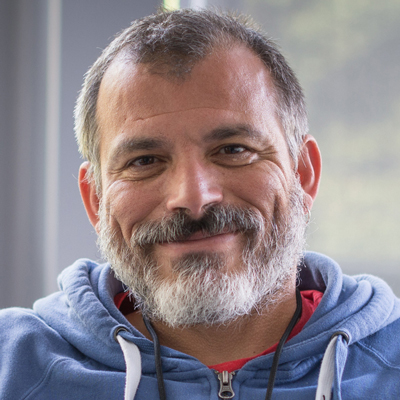
Dr. Giovanni Marsicano is a tenured researcher at Inserm. He leads the group “Endocannabinoids and Neuroadaptation” at the NeuroCentre Magendie, an INSERM and University of Bordeaux Research Center devoted to neuroscience. Dr. Marsicano is a Veterinary Medicine Doctor as formation. After his diploma, he worked on research related to Embryonic Stem Cells from farm animals and to xenotransplantation models in Italy for 4 years. He then moved to the Max-Planck Institute of Psychiatry in Munich for a PhD student position, where he initiated the work on the role of type-1 cannabinoid receptors (CB1) and of the endocannabinoid system (ECS) in brain physiology, which since has been his main research interest. The subject of his PhD thesis was the generation of conditional mutants for CB1 and anatomical and functional studies on the mechanisms of action of the ECS. After PhD graduation in 2001, he made two post-doctoral periods in Germany and moved to Bordeaux in 2006 (recruited as Inserm senior scientist in 2007) to lead his independent research group. He is member of the SfN, the French Society of Neuroscience, the International Cannabinoid Research Society (ICRS) and of the International Society of Neurochemistry (ISN). By using conditional mutagenesis in mice and behavioral, biochemical and electrophysiological tools, his work contributed defining the role of CB1 in specific cell populations in learning and memory, food intake and energy balance, anxiety, stress-coping and others. Through a clear bottom-up scientific approach, these studies allowed exploring some general principles of brain functioning, such as the balance between excitation and inhibition, the interactions between the brain and the periphery, the importance of energy metabolism in brain functions and, more recently, the interaction glial-neurons. In 2012, by generating conditional mutant mice lacking CB1 receptors from GFAP-positive cells, he contributed to define the role of astroglial CB1 receptors in the working memory effects of cannabinoids and on their in vivo electrophysiological correlates. Since then, the role of astroglial CB1 receptors became one of the most important lines of research in his group. In particular, published and ongoing studies deal with the impact of CB1 receptors on gliotransmission and bioenergetic functions of astrocytes. Dr. Marsicano will present a brief critical analysis of advantages and limitations of behavioral approaches in neuroscience and will summarize the recent results of his team concerning the roles of astroglial CB1 receptors in brain functions.
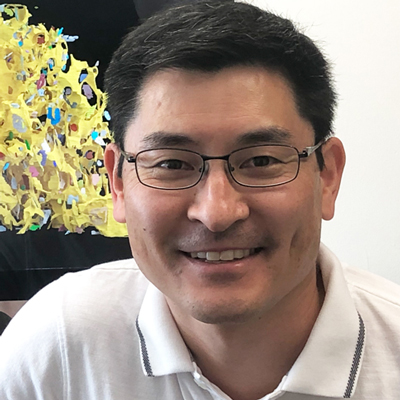
Keith Murai is a Professor in the Department of Neurology & Neurosurgery, Associate Dean of the Faculty of Medicine and Health Sciences, and Director of the School of Biomedical Sciences at McGill University. His research focuses on: (1) Understanding how neurons and astrocytes cooperate to regulate brain development, cellular heterogeneity, and homeostasis, and (2) Discovering mechanism that regulate the plasticity of synapses that underlie memory formation and cognition. His research group also interlaces preclinical models of brain disease to better understand how specific neuronal and glial pathways become disrupted under pathological conditions and how activating/inhibiting specific pathways can protect the diseased or injured brain. His laboratory uses advanced genetic, imaging (light and electron microscopy), physiological, and optogenetic techniques and has pioneered approaches for understanding glial cells in brain function.
_400x400.jpg)
Rosa C. Paolicelli is a tenured Associate Professor at the University of Lausanne. Rosa obtained an M.Sc. in Molecular Neuroscience at the University of Bristol, UK, in 2007. She completed her predoctoral studies at the European Molecular Biology Laboratory (EMBL) in Italy, with a Ph.D. in Cellular and Molecular Biology in 2011, under the supervision of Cornelius Gross. She moved then to Switzerland, to work as a postdoc at the University of Zurich in the Laboratory of Systems and Cell Biology of Neurodegeneration, with Lawrence Rajendran. Since 2018, Rosa leads the Microglia Biology lab, at the Department of Biomedical Sciences, at the University of Lausanne. Her research focuses on the molecular and cellular mechanisms underlying the specific microglial contribution to brain functioning, in physiological as well as pathological contexts. In particular, she is interested in understanding the role of microglia in synaptic pruning.
Rosa's lab has also recently started to investigate the metabolic control of microglial function in brain development and neurodegeneration, with a special focus on lactate metabolism.
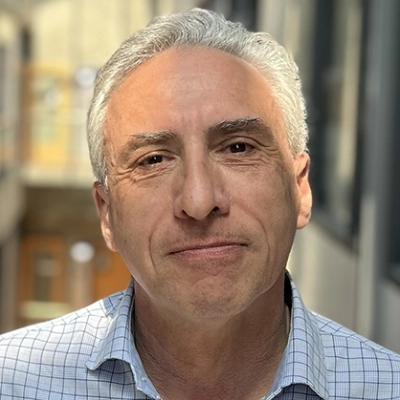
Richard Robitaille is a Professor in the Département de neurosciences at Université de Montréal, Montréal, Canada. He received his PhD in 1989 in Neurobiology at Université Laval with Dr Jacques P. Tremblay. He did his post-doctoral training with Dr Milton P. Charlton in the Department of Physiology at the University of Toronto from 1989 to 1993 where they first described synaptic communication to glial cells at the neuromuscular synapse. He then started his independent research activities in 1993 at Université de Montréal where he stayed since. He and his team made a number of seminal discoveries including the basis of neuron-glia interactions at the neuromuscular synapse, the roles of astrocytes in synaptic plasticity and the fundamental roles of astrocytes at the level of the single synapse. His current research uses acute brain slices to address the role of glial cells in the regulation of basal inhibitory synaptic transmission and the regulation of synaptic plasticity in the CNS. He also studies the contribution of glial cells in the demise of neuromuscular synapse in ALS, using neuromuscular preparations from rodent models of ALS and samples from patients with a definite translational goal towards clinical applications.
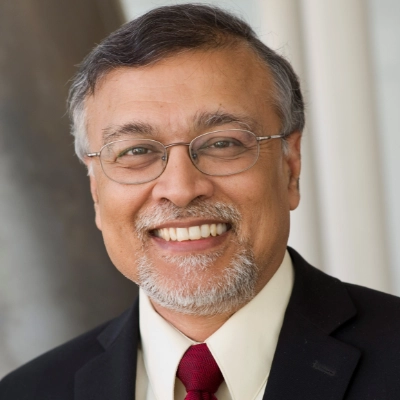
Mriganka Sur is the Newton Professor of Neuroscience and Director of the Simons Center for the Social Brain at the Massachusetts Institute of Technology (MIT). He is a pioneer in studying the organization, plasticity and dynamics of the brain’s cerebral cortex using experimental and computational approaches. His laboratory has demonstrated crucial roles for astrocytes as partners with neurons in brain circuits mediating information processing and learning. His group has shown that astrocytes critically regulate hemodynamic signals fundamental for functional brain imaging, that astrocytes shape synaptic and high-dimensional neuronal activity underlying cortical processing, and direct activation of astrocytes by neuromodulators underlies cortical mechanisms of reinforcement learning. His laboratory has identified gene networks underlying cortical plasticity, and invented high resolution imaging methods and novel tools for studying cells, synapses and circuits of the intact brain. His group has demonstrated novel mechanisms underlying disorders of brain development and proposed innovative strategies for treating such disorders – including the only FDA-approved mechanism-based treatment for Rett Syndrome, now known to be based on astrocyte mechanisms. Prof. Sur is an elected Fellow of the Royal Society (UK), the US National Academy of Medicine, the American Academy of Arts and Sciences, and the World Academy of Sciences.